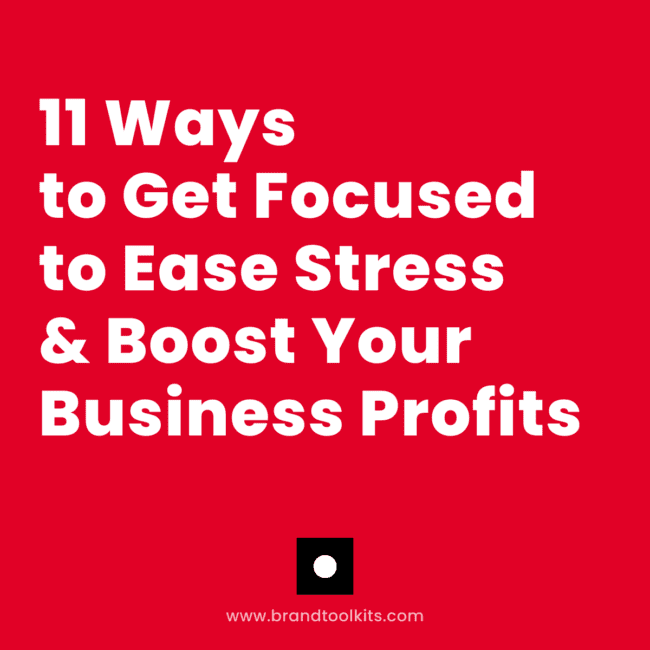
If you have recently opened your own business or are seriously debating the possibility of doing so, it is imperative that you recognize why so many new businesses are expected to fail within the next year.
Established businesses should also check in, especially if you have been in a growth phase. You may have started off right, but gotten off-track over time.
You are most likely aware of the alarming statistics regarding the possibility of your business failing. The U.S. Small Business Administration has released statistics that report only seven out of ten “new employer” firms remain open after two years, and only 50% are still open after five years. Be aware that these statistics only apply to businesses that have hired at least one employee. Statistics are unavailable for individuals who run home businesses alone, but it almost guaranteed that the percent that fail would be even higher.
Here are the top 10 reasons why most businesses will fail. This is your first line of defense in ensuring that you do not become a statistic yourself.
1. Failing to Have a Business Plan in Place
It is vital that a new business owner have a clear plan in place for starting and operating their business. Failure to plan appropriately is one of the most common causes of a new business failing. You can opt to have a formal business plan, but it is not necessary. It is not necessary to plan out every detail, but you must know what the services or products you offer will be, how you will identify potential customers, and how you will effectively market to those customers.
Additionally, it is important that you be proactive, flexible, and responsible. If you find that a certain aspect of your plan is not working, you will need to be able to identify the reason and determine how to correct it in the future.
2. Not Creating Measurable Goals
One component of your business plan will include the creation of goals for your business. Your goals can be anything from reaching a specific number of customers within the first six months of operations to reaching a certain level of income within a year of opening your business.
Creating goals gives you the opportunity to create a detailed roadmap on how you will go about achieving them. Owners opting to open a business without having measurable goals in place will make it almost impossible for them to determine if their decisions are helping their business succeed because there are no standards for success in place.
3. Insufficient Record-keeping
The failure of many businesses can be attributed to inadequate record-keeping. This includes every aspect of record-keeping from the business’ finances to records related to domain registrations and website hosting as well as contracts and agreements with freelancers, web developers, and any other individuals the business deals with.
Keeping inadequate records can cause numerous problems. These include improperly filed tax returns to wasting a significant amount of time attempting to figure out how to solve the problems that have been created and possible disputes with customers and contractors. New business owners can prevent these problems from starting simply by setting up proper record-keeping systems from day one and requesting outside help when needed.
4. Inadequate Funding
There are new businesses that will fail within the first year due to inadequate funding. This is not always the result of failing to secure a loan from a bank or an outside investor. Without a doubt new businesses will have money coming in and going out.
However, expenses must be decreased if the amount of money coming in does not meet initial expectations. Your funding is only considered inadequate if it is not able to cover your expenses, but reducing expenses may potentially solve the problem.
You may consider working a part-time or full-time to supplement your income in the initial startup phase. This will relieve a lot of the pressure that new Entrepreneurs feel. While this option isn’t your long-term passion, keep in mind that it’s funding your dreams!
5. Charging Too Little
There is no doubt that new business owners want to make certain that they get as many customers as possible into their store and will do almost anything to make this happen. As a result, many believe their best option is to price their products considerably lower than they should be. This can result in small immediate gains, but can have devastating consequences in the long term.
After a customer has been sold a product at a discounted price, it is very difficult to charge more for the same item later. This leaves you with two options. Either give an item away completely or sell it at full price. If you opt to give a free gift away make certain that you get something in return such as a customer’s email address. This gives you a direct way to market to them later and makes them aware that your service or product is not always free.
6. Insufficient Value Proposition
Value propositions are frequently referred to as a “unique selling position” and are what convinces a customer to purchase your product or service. Getting their value proposition wrong is a common reason for businesses to fail in the first year. This is usually the result of the owner trying to solve the wrong problem or failing to realize what the problem even is. To determine the correct value proposition, consider what sets your business apart from others.
Your ideal clients want to know “what’s in it for me”, meaning how your product or service solves their problem.
7. Poor Customer Service
Excellent customer service is imperative in order for a business to succeed. Any business that treats its customers badly will find that it is almost impossible to overcome the reputation they will gain. Treat your first interaction with a customer as the beginning of a long relationship. Follow up with customers after transactions to ensure that they are pleased with their purchase.
Also, send special offers to for new products you are introducing. Stay in touch with your customers and involve them in online conversation via social media or email marketing to make them more likely to be a repeat customer AND also send you referrals.
8. Neglecting Your Own Health and Emotional Well-being
Opening a new business can result in significant physical and mental stress. This can take a serious toll on the owner, who does not have access to any sick days. Many owners rationalize that it is okay to sacrifice their mental and physical health for the sake of the business, but this is not true. It can put you and the business in jeopardy. Keep yourself healthy and fit to keep your business healthy and fit.
It’s also important to remember that the line between work/life time gets blurred when you are a business owner. You won’t only be working 9-5. This gives you a lot of flexibility and you can adjust your schedule to other priorities of life, whether an emergency situation or just time for family & friends. Be gentle on yourself, and get into a good rhythm to adjust to what’s important.
9. Not Realizing You Lack Knowledge or Expertise
It is perfectly acceptable to enter into a business with a level of inexperience if you plan to do something about it. You have to become an expert in your field as quickly as possible to give your business the chance it needs to survive. Until you are truly an expert, keep in mind that help is always available. Consider working with a freelance consultant, web designer or a virtual assistant.
Even if you are an expert in YOUR field, BUSINESS may be totally new. There’s a LOT to learn in running a business. This does not mean you are stupid or incapable. I’ve seen extremely intelligent people suffer with high stress levels and no cash flow because they didn’t ask for help soon enough. They assumed that they could easily learn all the ins & outs of running a business quickly. Ask for help sooner than later.
10. Not Feeling Passionately About Your Business
A business owner can successfully conquer all the problems above, but if they do not feel passionately about their business, it will likely fail. New business owners that open a business simply with the goal of making more money and do not care about the products or services they offer or treat their customers indifferently are likely to see their business close.
Your “big why” is the fuel that will get you through long days that seem like an uphill climb. It will inspire you to keep pushing ahead to reach your desired results. It’s what makes you an Entrepreneur and not someone’s employee. Combine this passion with numbers 1-9 nothing will stop you!
TAKE ACTION: Taking an honest look at your new (or established) business might be difficult, but it can be a worthwhile exercise if it helps you avoid the problems discussed above.
Schedule your 30-minute consultation now »
1. No Business Plan → Instant Overwhelm
If you’re winging it, you’ll stay stuck in idea swirl. Without priorities, every shiny idea feels urgent, and burnout happens fast.
2. Trying to Do Everything Yourself
From branding to websites to marketing, you take on too much and nothing gets finished. DIY sounds scrappy — but in reality, it’s a time and money drain.
3. Scattered Tools + Half-Built Systems
One Canva file here, a Google Doc there, and a half-working email tool. Instead of building momentum, you’re patching leaks every day.
📊 “20% of small businesses fail in their first year, and nearly 50% don’t make it to year five.” — U.S. Bureau of Labor Statistics
Most don’t fail because of bad ideas — but because of chaotic execution.
4. No Clear Target Audience
If you’re trying to talk to everyone, you’re reaching no one. Without clarity, your messaging feels vague and your offers get ignored.
5. Embarrassing or Outdated Website
You know your site doesn’t reflect your value — but instead of fixing it, you avoid sending people there. That silence is costing you leads.
6. Overcomplicated Marketing
Social media, ads, funnels, SEO — it all feels cringey or too complex. You dabble but never see results, and eventually avoid marketing altogether.
7. No Way to Measure Progress
You’re working hard but have no scorecard. Without clear benchmarks, you can’t tell what’s working, so you stay stuck in busywork.
⚠️ The AI Trap: Yes, you can ask ChatGPT for business advice. But if you don’t know what you actually need, AI just spits out more noise. Tools can’t replace strategy. Without a framework, you’ll waste even more time chasing quick fixes.
8. Copying Competitors
Scrolling Instagram isn’t a strategy. Mimicking what others do just makes you blend in — and leaves your unique value buried.
9. Underestimating the Real Work
You thought it’d be logos and clients rolling in. Instead, it’s bookkeeping, tech issues, and never-ending decisions. Reality hits harder than expected.
10. No Support System
Going it alone is exhausting. Without guidance, accountability, and clear priorities, most people stall out or give up entirely.
Your Next Step → Stop Trying to Fix This Alone
If you see yourself in even one of these reasons, you don’t need another template or tip — you need a system.
That’s exactly what I do:
I help business owners cut through the chaos, organize their ideas, and finally build a brand that works.
👉 Your one next step? Reach out. Let’s get your business on track before you burn out.
Thinking about starting a business — or already knee-deep in one?
Most new businesses fail in their first few years, not because the idea was bad, but because of common, avoidable mistakes. Here’s a quick guide you can actually use.
1. No Business Plan → Instant Overwhelm
If you’re winging it, you’ll stay stuck in idea swirl. Start with a general idea of the demographics and psychographics of your market and aim at them exclusively. If people from another demographic or psychographic buy from you, that’s an added bonus.
Write down 3 goals and 1 step for each — enough to cut the chaos.
2. No Measurable Goals → Zero Progress
If you don’t track it, you can’t grow it. Vague goals lead to vague results. One of the biggest mistakes business owners make is jumping into trying to sell their product or service without having done any type of research or testing of the product.
Pick one number that matters (sales, leads, bookings) and track it weekly.
3. Poor Record-Keeping → Messy Finances
If you don’t know where your money’s going, your business can’t stay healthy.
Set up one system (even a simple spreadsheet or app) to track income + expenses.
4. Inadequate Funding → Constant Stress
Running out of cash isn’t just stressful — it’s the fastest way to close your doors.
Calculate your 3 biggest monthly expenses and make sure you can cover them before scaling.
5. Charging Too Little → Burnout Mode
Undervaluing yourself means overworking for less.
Raise your price on ONE offer this week — even 10% helps.
6. Weak Value Proposition → Confused Customers
If people don’t know why they should pick you, they won’t.
Write one sentence that explains what you do, who it’s for, and why it matters.
7. Poor Customer Service → Lost Clients
Happy clients return (and refer). Unhappy ones disappear — fast.
Send a quick “thanks for working with me” email to your last 3 clients.
8. Ignoring Your Own Well-being → Burnout
If you’re exhausted, your business suffers too.
Block off one non-negotiable recharge hour this week.
9. Not Showing Your Expertise → Missed Opportunities
If people can’t see your skills, they’ll hire someone else.
Share one tip or example of your work on LinkedIn, Instagram, or email today.
10. No Passion → No Staying Power
If you don’t care about your business, it won’t last when things get hard.
Write down one thing you love about your work and build on it.
Final Takeaway
Most businesses don’t fail because of one giant mistake — they fail from a pile of small ones. Start with one quick win above and keep going. Progress beats perfection.

Marketing Strategist & Designer
With 30+ years in marketing, design, websites, and strategy, I’ve seen how easy it is for service-based entrepreneurs to get stuck or overwhelmed. That’s why I blend those services with my Brand Builder Toolkits — to give people like you a smarter, saner way to build. It’s a structured but flexible approach to adjust to your business and life. Let’s build your brand together.




